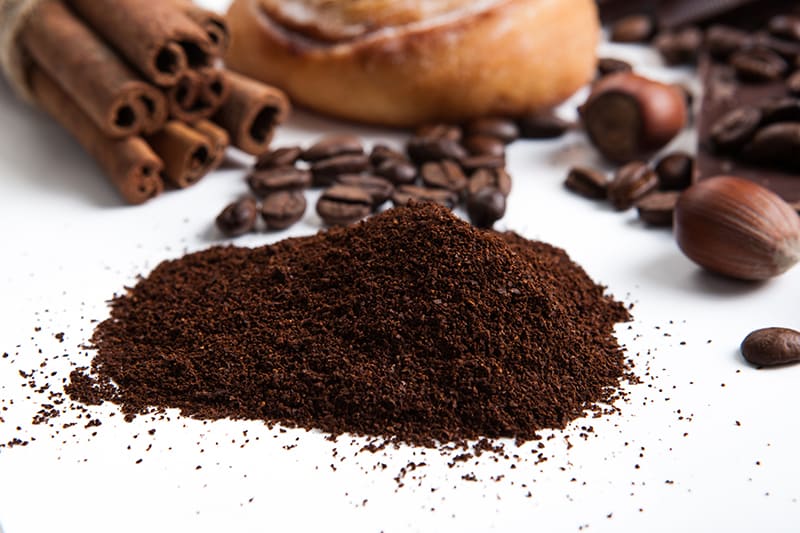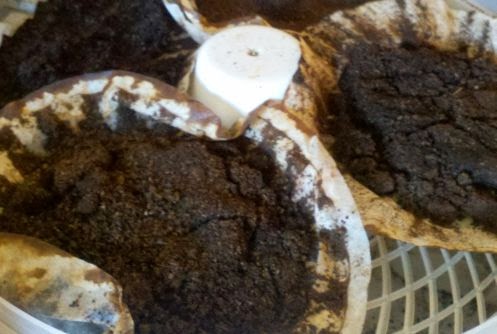Can You Put Coffee Grounds Down the Sink? - Understanding the Impact
Can You Put Coffee Grounds Down the Sink? - Understanding the Impact
Blog Article
We've stumbled upon this article relating to Can You Put Coffee Grounds in the Sink Garbage Disposal? below on the internet and thought it made sense to share it with you in this article.

If you're a devoted coffee enthusiast, you may be wondering about the very best method to get rid of your coffee premises. While it might seem hassle-free to clean them down the sink, this method can cause numerous problems for both your plumbing and the setting. In this short article, we'll explore whether it's safe to place coffee premises down the sink and go over different disposal approaches to think about.
Alternatives to Disposing of Coffee Grounds
Trash Disposal
If you don't have a composting arrangement, another option is to simply throw your coffee grounds in the trash. Make sure to secure them in a compostable bag or container to stop odors and leakage. While this approach does not use the exact same ecological benefits as composting, it's a risk-free and convenient means to deal with coffee grounds.
Composting
One environment-friendly choice for getting rid of coffee grounds is to compost them. Coffee grounds are abundant in nitrogen, making them an outstanding enhancement to compost piles or bins. As they disintegrate, they add nutrients to the soil, boosting its fertility and structure.
Dangers of Putting Coffee Grounds Down the Sink
Plumbing Issues
One of the key concerns with getting rid of coffee premises down the sink is the danger of clogging your pipelines. Coffee grounds don't liquify in water and can collect with time, forming a dense sludge that can block drains pipes and cause pricey plumbing repair services.
Ecological Impact
Beyond the prospective damage to your plumbing, placing coffee grounds down the sink can additionally damage the atmosphere. When cleaned into the sewage system, coffee grounds can contribute to blockages in sewage system lines and treatment facilities. In addition, the high focus of raw material in coffee premises can deplete oxygen levels in waterways, adversely affecting marine life.
Tips for Proper Disposal
Regular Maintenance
Despite how you choose to take care of your coffee premises, it's necessary to maintain your plumbing consistently. Arrange periodic drainpipe cleansings to eliminate any kind of build-up and guarantee that your pipelines remain clear and free-flowing.
Make Use Of a Sink Strainer
To avoid coffee premises from entering your sink's drainpipe to begin with, think about utilizing a sink filter. These economical devices trap strong fragments, including coffee grounds, avoiding them from triggering obstructions.
Final thought
While it might be tempting to wash coffee grounds down the sink for comfort, doing so can have significant consequences for your plumbing and the setting. Instead, take into consideration composting your coffee grounds or disposing of them in the garbage. By taking on responsible disposal techniques, you can enjoy your coffee guilt-free while lessening your environmental impact.
Coffee Grounds Down The Drain: Are They OK?
Can Coffee Grounds Go Down the Sink?
You may be thinking, “But I pour them down the sink drain every day and I’ve never had a clogged drain!” You see, coffee grounds come from coffee beans, which are virtually rock hard by the time they’re ground and brewed. You certainly wouldn’t want to grind up the pit from a peach, apricot, or nectarine that is about just as hard because they wouldn’t break down like other foods, and it’s the same with coffee beans!
If you usually grind coffee beans in the garbage disposal because it seems the cleanest and convenient, we don’t fault you for that. And anyone who has ever had to clean up the trash with spilled coffee grounds after a dog got into it would understand the rationale. Unfortunately, coffee grounds do not break down in water, so instead of grinding up and washing away as normal foods do in a garbage disposal, they clump together and as time goes by, the grounds can form a clump and pack the drain until it develops a clog.
What to Do With Coffee Grounds
So, what do you do with coffee grounds if you can't put them down the drain? You could of course just throw them in the garbage, but we encourage you to give these practical uses for them a try!
Since coffee grounds contain key minerals for plant growth, you can use them to fertilize your garden. Coffee grounds not only fertilize gardens because they are mineral-rich, but they are also great at absorbing contaminants in the soil, particularly heavy metals. Coffee grounds are said to attract worms, which help gardens flourish. You can use coffee grounds as fertilizer by sprinkling them around your plants. You can compost your coffee grounds and use them at a later time. Coffee grounds are great insect repellents when you place them in bowls or sprinkle them around the areas you want to repel insects. To remove fleas from your dog or cat, simply shampoo your pet then rub coffee grounds throughout their fur. Rinse them off and dry as usual. Like baking soda, used coffee grounds can eliminate odors. You can place them in a bowl in the fridge and let them do the work! Mix coffee grounds with coconut oil for a wonderful face or body scrub, or to reduce the appearance of cellulite. https://www.wintershomeservices.com/blog/2019/august/coffee-grounds-down-the-drain-are-they-ok-/

I'm just very focused on Is it safe to dispose of coffee grounds down the sink? and I really hope you appreciated my entry. Do you know about another individual who is fascinated with Can You Put Coffee Grounds in the Sink Garbage Disposal?? Take a moment to share it. Thank you for your time invested reading it.
Book 24/7 Report this page